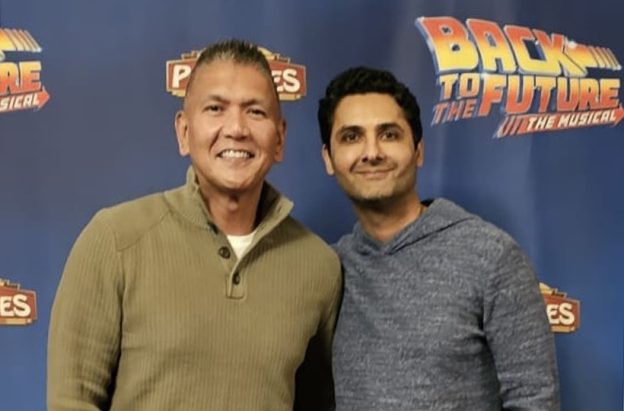
Five questions for … Dr. Navdeep Sangha
Navdeep S. Sangha, MD, is a vascular neurologist and co-assistant chief of Neurology at the Kaiser Permanente Los Angeles Medical Center. He is the director of the Kaiser Permanente Southern California Regional Stroke Program and the Kaiser Permanente Southern California Telestroke Program. He joined Los Angeles Medical Center’s Neurology Department in 2012.
As the principal investigator for stroke clinical trials at the medical center, Dr. Sangha’s has a goal of preventing strokes and improving treatment for strokes. He is currently participating in 8 clinical trials.
We asked Dr. Sangha about his life and his work:
You were born at the Kaiser Permanente Los Angeles Medical Center. How did you come full circle to working at the same place?
I did my residency here at Kaiser Permanente in Los Angeles, and then I went away and did a 2-year stroke clinical and research fellowship in Houston, Texas. But family was a big pull to come back. Not just my immediate family but all my aunts, uncles, and cousins are here in Southern California – even second cousins. In addition to that, I knew the system quite well—I knew that the Southern California Permanente Medical Group and Kaiser Permanente provided high-level evidence-based care for their patients. And the Los Angeles Medical Center had a high-functioning neurology department that is very collegial and evidence based.
As a clinician and researcher, have you seen changes in your practice based on the clinical trials you participated in?
Yes, absolutely. One of the most recent examples is the SELECT2 study where we enrolled patients with large ischemic strokes, which are strokes caused by a blood clot or blockage in a major blood vessel in the brain, leading to a significant area of brain tissue being deprived of blood flow. We used to think patients with this type of stroke could not recover, even if they had treatment. But now we realize that if they receive a treatment called thrombectomy, which is a procedure to remove a blood clot from a blood vessel, that they have a better chance of doing well. While we have been performing thrombectomies for a long time, this was an additional indication that we were on the right track. The study published in 2023. It is definitely gratifying that we can improve care that improves outcomes for stroke patients.
You have been recognized in the DISCOVERY clinical trial as the top 3 enrolling site, and in the CREST II clinical trial as a top 5 enrolling site. Can you tell me what those trials aim to accomplish and what accounts for your success in enrolling?
Initially, when I started in the department, we did not have a lot of support, but that has changed over the years, which has really helped fuel our success.
The DISCOVERY clinical trial is a long-term cognitive study aimed at determining how stroke affects patients’ cognition. The CREST II study aims to determine whether surgery will reduce stroke risk when there is incidental blockage of the carotid arteries in the neck, or if it is better to leave them alone. Often it feels intuitive that if you have a blockage, you should open it, but doing surgery for blockages in the arteries of the neck can also have a risk of stroke.
Credit for our success in enrolling for these important studies really goes to our great team in neurology. Our team has 5 stroke neurologists, as well as residents, fellows, clinical trial research associates, and a great nurse practitioner. It is an effective system where our physicians identify the patients, and the research associates help us enroll them and schedule them for follow-ups.
Why is having a top-enrolling site for clinical trials important?
The most important reason, to me, is that it means our patients are getting another level of care, another care pathway that might not be available elsewhere.
When the current evidence has nothing else for us to offer them, instead of wiping our hands and saying, “Hey, we cannot really do anything for you,” instead we can say, “We can try this option.” This gives us and the patients another possibility to consider.
Additionally, it creates buzz for Kaiser Permanente, and more people know that we are doing good things for our patients. It is not just traditional treatment, but the newest treatments that come with enrolling patients in clinical trials.
While not at work, what do you enjoy doing in your spare time?
I enjoy traveling and going to musicals with my husband, Elbert Valdez. In fact, we are season ticket holders at the Pantages!
Photo caption: One thing Dr. Sangha (right) enjoys in his time off work are musicals. Here he is with his husband, Elbert Valdez, (left) before they saw “Back to the Future – The Musical” at the Hollywood Pantages Theatre.





